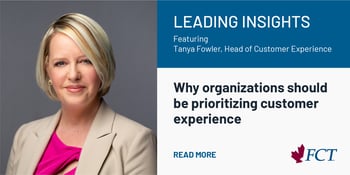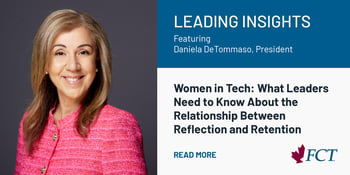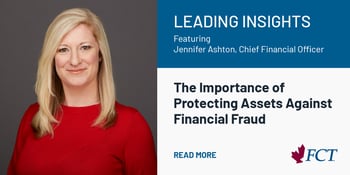
Mortgage refinancing offers many homeowners a powerful tool to consolidate unsecured and secured debt, get a better interest rate, or even fund large projects and investments. There are great reasons to consider refinancing, but it may not be the right option for everyone. Before moving forward, ask these five questions:
What are my debt servicing ratios?
To get the best interest rates and put less than 20% down, you need to qualify for mortgage insurance. Canadian Mortgage and Housing Corporation (CMHC) insurance has two key qualifiers: your credit score, which needs to be at least 600, and your debt servicing ratios. These take two forms:
- The Gross Debt Service (GDS) ratio measures what percentage of your income before taxes would have to go toward monthly housing costs: mortgage, property taxes, heating bill and condo fees, if applicable. To qualify, it can’t be higher than 39%.
- The Total Debt Service (TDS) ratio measures the percentage of your income before taxes needed to cover all debt payments. It includes GDS as well as any other debt payments, like student loans, car payments and any lines of credit. To qualify, it can’t be higher than 44%.
Use the CMHC debt service calculator to help determine your GDS and TDS ratios. There are also private mortgage insurance options, with varying qualification requirements.
What’s my current home equity?
Your home equity is how much of your home’s value you own. This increases as you pay off more of your mortgage. When you refinance, you can borrow up to 80% of your home’s current value, minus how much you still owe on your current mortgage.
- Example: your home is appraised at $800,000 as part of securing the refinance deal, and you still owe $200,000 on the mortgage. Your maximum loan would be 80% of the $600,000 remainder, or $480,000.
Your debt servicing ratios play a role here as well, impacting how close to that 80% a lender will be willing to offer. If your ratio is too high, the lender may consider you a risk, less likely to be able to make payments on a large loan.
How much will it cost to refinance?
Refinancing involves a few associated costs, so it’s important to calculate whether you stand to gain more from the deal than you’ll spend.
Prepayment penalties
If you’re breaking your mortgage before the end of its term, your lender may charge a penalty. Penalties are typically three months’ worth of interest for variable rate mortgages, or the interest rate differential for a fixed rate mortgage—some lenders will use the higher of the two. Always ask your current lender in advance if a penalty will apply, and if so, what it will be. It’s important to factor in how early you’re breaking your mortgage contract, the difference in the interest rates, and how much is still left on your mortgage.
Home appraisal cost
Your lender will need an up-to-date valuation of your property to determine your home equity and available refinance amount. Some lenders now use automated valuations, but some still send a home appraiser to determine the property’s value. Appraisals usually start at $350, but can cost more depending on the property value and location. $500 is around the upper end for Alberta, with B.C. appraisals sometimes going above $500, and Ontario appraisals sometimes above $700.
Closing costs
These can include administrative fees, reinvestment fees, and a discharge fee. These cover the service itself, as well as the due diligence needed to fund the new mortgage and register it on your property’s title. The cost will vary depending on how early you’re breaking your existing mortgage contract as well as your specific lender.
Lender title insurance
Many lenders need you to get a lender title insurance policy as part of qualifying for a mortgage with them. While it protects the lender, you do get some benefits from it, like a smoother closing. The lender policy lasts as long as your mortgage does. But if you refinance with a different lender, that’s considered a new mortgage, and you may need a new policy. If you have homeowner’s title insurance as well, it protects you as long as you have an interest in the property.
Not sure which title insurance policies you have? Learn more.
Where are interest rates heading?
One of the most common reasons homeowners refinance is to take advantage of lower interest rates. Taking the above $480,000 example, even a 1% difference can save hundreds of dollars a month. The long-term savings with the new rate may be worth the upfront cost of refinancing.
Interest rates are predicted to start rising soon from their historic low, but slowly. If you bought or last refinanced your mortgage in 2017, refinancing at a 5-year fixed rate could still mean lower interest, if you refinance at the right time.
What’s the right mortgage for me?
When you refinance, you have the chance to select a whole new mortgage. You aren’t tied to the same lender or even the same type of loan you had previously. The best thing you can do is to consider all your options.
If you want to pay off your home quicker, now may be a good time to switch from a 25-year mortgage to a 15-year option. Or you can decide you no longer want a variable rate mortgage. You may prefer to go with a fixed rate to ensure that your payments won’t rise during the term of your mortgage.
Speak to a lending professional you trust to find the option that’s right for you. The lowest rate isn’t always the cheapest mortgage in the long run, and refinancing every three to five years may not work for you. But done correctly, refinancing can save you a great deal of money or even fund investments or education. You work hard to build your equity—make it work for you.
This is intended to be general information only and does not constitute financial advice.
Insurance by FCT Insurance Company Ltd. Services by First Canadian Title Company Limited. The services company does not provide insurance products. This material is intended to provide general information only. For specific coverage and exclusions, refer to the applicable policy. Copies are available upon request. Some products/services may vary by province. Prices and products/services offered are subject to change without notice.
®Registered Trademark of First American Financial Corporation.










-min.jpg?width=350&height=216&name=FCT-Leading-Insights-Michael-LeBlanc-ENG_blog%20(1)-min.jpg)




-min.jpg?width=350&height=216&name=tanya-fowler-leading-insights-human-digital-innovation-blog%20(1)-min.jpg)






-min%20(1).jpg?width=350&height=216&name=Big-Data-Blog%20(2)-min%20(1).jpg)


